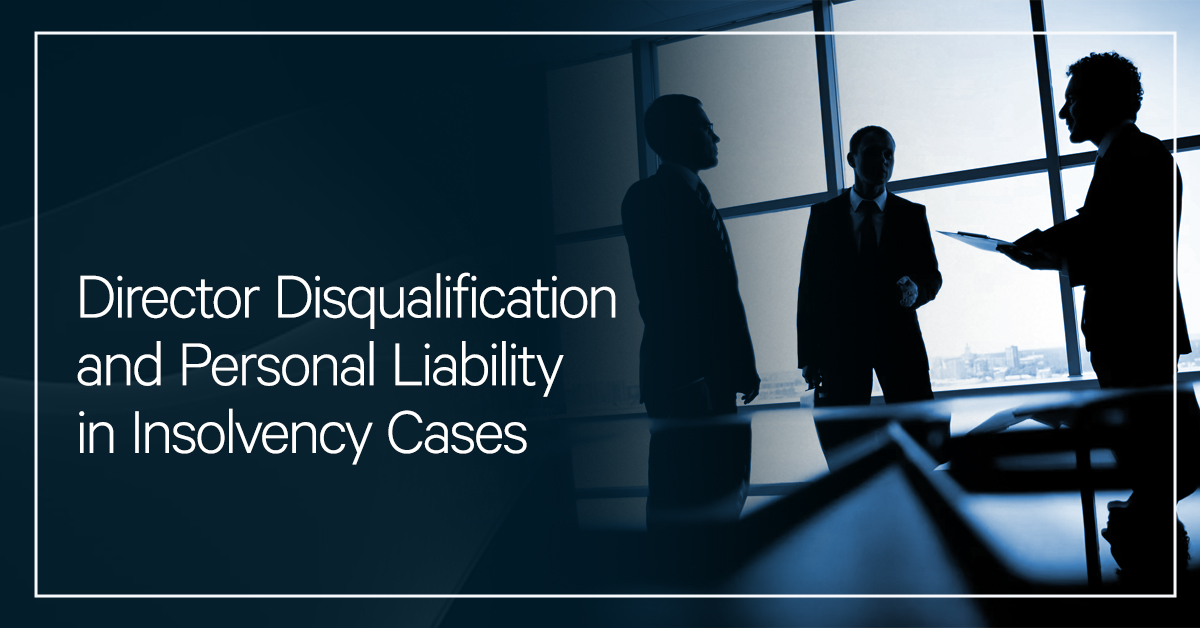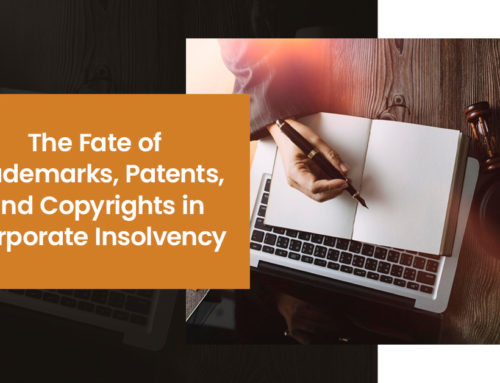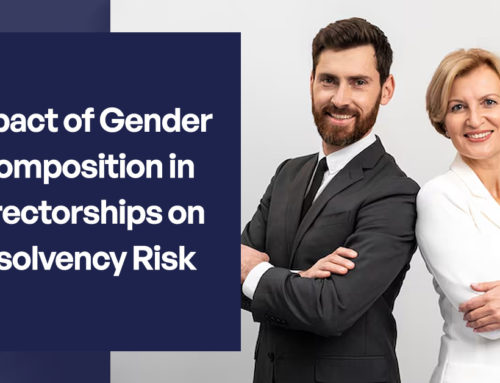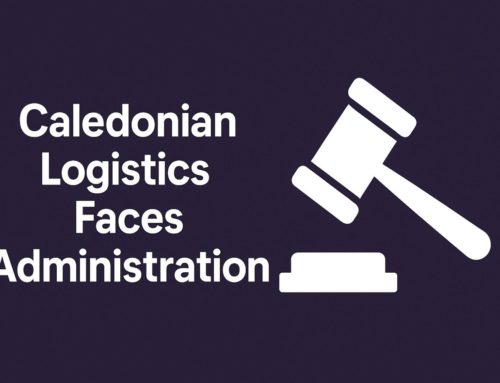Insolvency is an unfortunate reality for many businesses, but the consequences can go far beyond the company itself. Directors of insolvent companies may find themselves facing both professional and personal consequences. Among the most significant risks are director disqualification and personal liability in insolvency cases. Understanding the implications of these legal actions is essential for business owners, directors and their advisers. In this blog, we explore the key aspects of director disqualification, personal liability and what steps directors can take to protect themselves when dealing with insolvency.
What is director disqualification?
Director disqualification is a legal measure prohibiting an individual from acting as a company director for a specified period, usually between 2 and 15 years. It can be imposed by the courts, following an investigation into the director’s conduct during the company’s financial decline.
If the director is found to have committed serious misconduct or breached their duties, they can be disqualified. This includes allowing the company to trade while insolvent, failing to pay taxes, or not fulfilling its responsibilities to creditors. The main aim of director disqualification is to protect the public and the business community from individuals who act irresponsibly or dishonestly.
What leads to director disqualification?
Certain actions by directors can trigger an investigation and lead to disqualification. These include:
- Trading while insolvent: Continuing to trade when the company cannot pay its debts can be considered a breach of duty.
- Failure to maintain proper accounting records: If a director fails to keep accurate and up-to-date records, they may be liable for misconduct.
- Preferential treatment to creditors: If a director favours certain creditors over others when the company is insolvent, this could result in disqualification.
- Fraudulent or reckless behaviour: Engaging in fraudulent activities or having reckless disregard for the company’s financial health can lead to legal consequences.
When a director is disqualified, they cannot act as a director or be involved in company management without the court’s permission. Disqualification is a serious matter and can have lasting consequences on a director’s career and reputation.
Personal liability in insolvency cases
One of the most worrying aspects of insolvency for directors is personal liability. While a company’s debts are typically considered separate from an individual’s finances, there are circumstances in which a director may be personally liable for the company’s debts. This could occur if the director has acted negligently or failed to adhere to their statutory duties.
When can directors be personally liable?
Directors can face personal liability in insolvency cases under several scenarios, including:
- Wrongful trading: A director can be held personally liable if they continue to trade knowing that the company is insolvent and there is no reasonable prospect of avoiding insolvency. If found guilty of wrongful trading, directors can be required to contribute personally to the company’s debts.
- Fraudulent trading: This is a more serious offence than wrongful trading and happens when directors are found to have deliberately engaged in fraudulent behaviour, such as falsifying company records or misrepresenting the company’s financial position. Fraudulent trading carries significant penalties, including personal liability for the company’s debts and imprisonment.
- Personal guarantees: In some cases, directors may have personally guaranteed company loans or debts. If the company becomes insolvent and cannot repay these debts, the director may be required to pay the outstanding amounts personally.
- Breach of statutory duties: Directors are legally obliged to act in the company’s and its creditors’ best interest. If they breach their statutory duties, such as failing to ensure the company pays taxes or provides necessary financial information, they may be personally liable for the company’s debts.
Impact of personal liability
Personal liability in insolvency cases can have severe consequences for directors. They could be forced to sell personal assets, and their credit rating damaged. In extreme cases, they may face bankruptcy, which could significantly affect their ability to run a business or hold directorial positions in the future.
How can directors protect themselves?
While personal liability and director disqualification are serious risks, directors can take steps to mitigate these risks. Here are some key actions to consider:
1. Seek professional advice early: If you suspect your company may be heading towards insolvency, it’s vital to seek advice from an insolvency practitioner or a legal professional as early as possible. Early intervention can help identify potential risks and prevent directors from unknowingly breaching their duties.
2. Act in the best interest of creditors: Once a company becomes insolvent, the director’s primary duty shifts from the shareholders to the creditors. Directors must act with the utmost care and ensure they’re not favouring certain creditors over others. Failing to do so could expose them to personal liability.
3. Provide accurate financial records: Maintaining accurate financial records is one of the director’s key responsibilities. These records not only help to manage the company’s finances but also provide evidence in the event of an insolvency investigation. Keeping proper accounts helps make sure that directors aren’t liable for negligent behaviour.
4. Consider voluntary arrangements or liquidation: In insolvency, directors should explore options like a Company Voluntary Arrangement (CVA) or liquidation. A CVA can help restructure the company’s debts, while liquidation can help wind down the company in a controlled manner. Both options, when done properly, may protect the directors from personal liability.
5. Avoid personal guarantees: If possible, directors should avoid giving personal guarantees for company debts. If a personal guarantee is unavoidable, ensure the company’s financial position is regularly reviewed and take action early if the company begins to struggle financially.
Protecting against director disqualification and personal liability
Director disqualification and personal liability in insolvency cases are serious concerns for business owners and directors. However, with proactive measures, directors can protect themselves from potential liabilities and avoid disqualification. Getting professional advice and understanding the legal responsibilities involved in running a company is essential for navigating the complex landscape of insolvency.
Get in touch
If you’re a director facing insolvency concerns or want to understand more about how to avoid personal liability, we’re here to help. We provide expert advice and tailored solutions for directors facing challenging situations. Call us on 0800 246 1845 or email us at mail@leading.uk.com for professional support and guidance.






